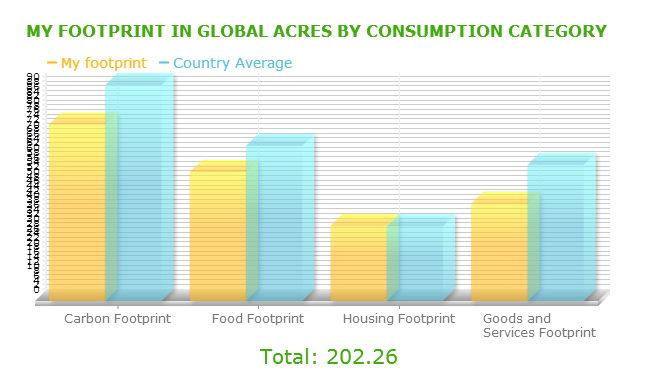At the beginning of the quarter, I found that I scored 5.21 Earths.
I was able to reduce my footprint in global acres from 202.26 to 155.66
The only thing that didn't really change was my pie chart showing the proportion of each impact category
Final Current Event:
I recently finished reading The Sixth Extinction, by Elizabeth Kolbert
This book was first brought to my attention when I saw John Stewart interview the author on The Daily Show, and my first thought was, "Oh, we're touching on similar topics in class!"
I purchased the book a few days later and then sped through it in the past two weeks.
It was very well written and very engaging, switching back and forth between the stories of Kolbert's research for the book and historical stories covering the development of the concept of extinction and the discovery of various fossils. The book was very eye opening. In the course of her research, Kolbert traveled around the globe, from a frog sanctuary in Peru to the reefs in the Southern Pacific to bat caves in upper New Jersey, talking to experts in various scientific fields.
It was kind of a sad book too. There were many stories about disappearing fauna, such as the Golden Frog in Peru and the po'ouli, a bird endemic to Hawaii that has gone extinct in the wild, but survives on through frozen cells.
So there was this inherent sadness to the book, but also an uplifting hope; learning about the conservation efforts in progress in the Amazon and in America and in places all around the globe helped ease the inherent uncomfortableness of having the evidence of human cause mass extinction brought to light.











